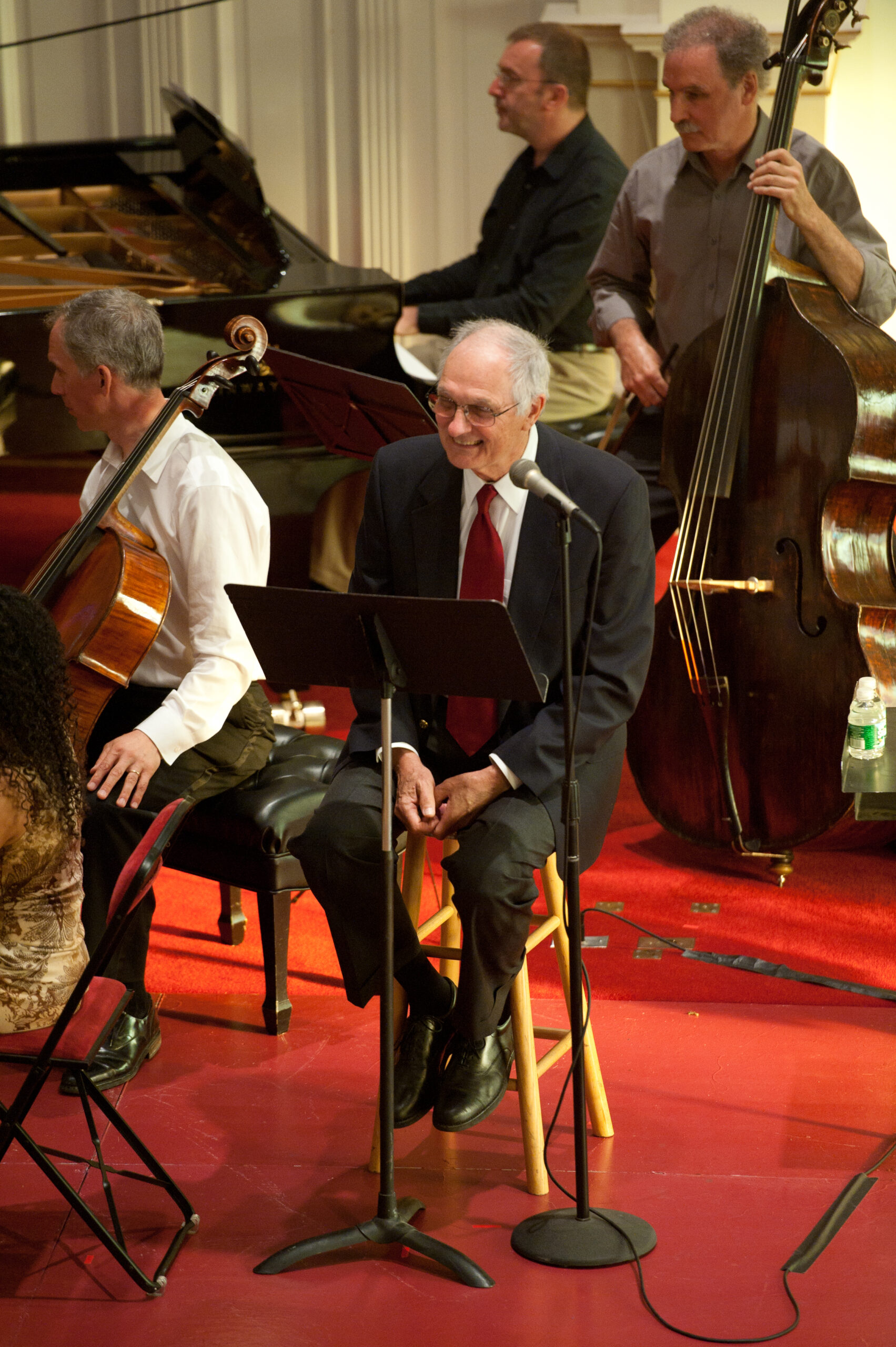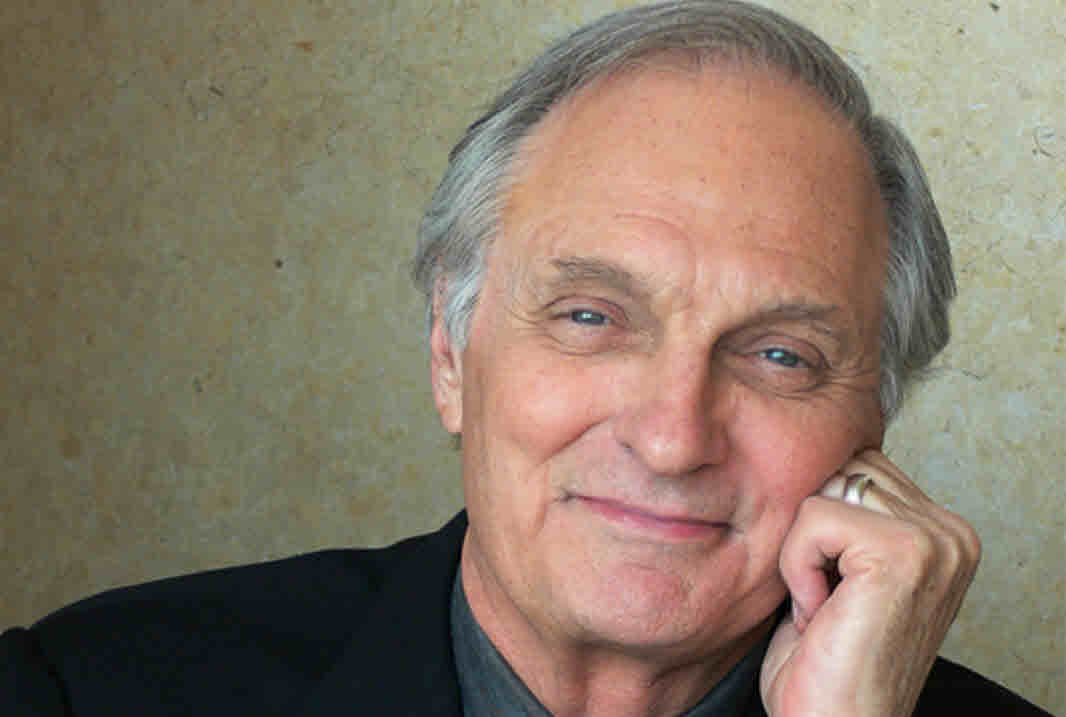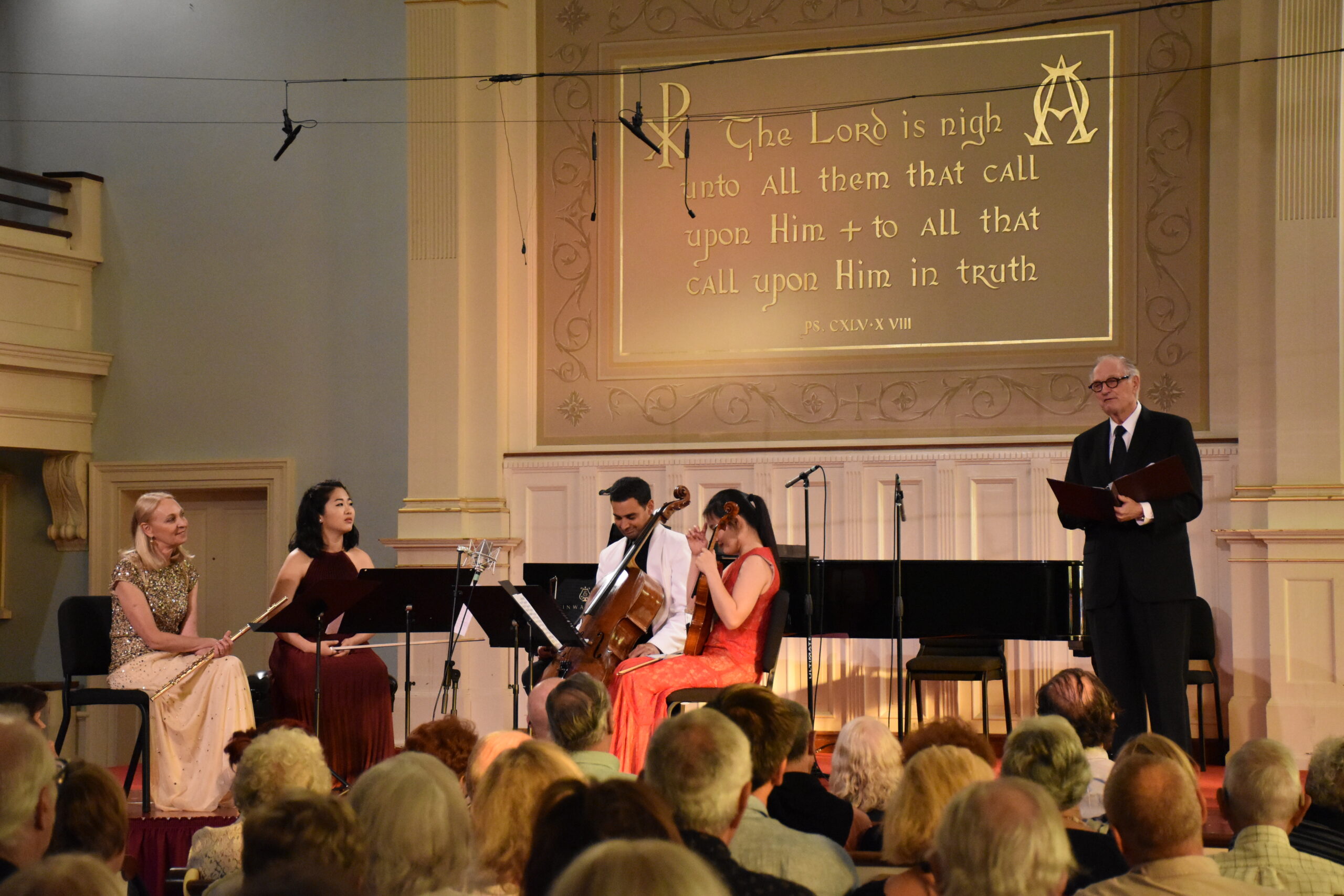
[caption id="attachment_66930" align="alignnone" width="681"] Alan Alda performed at the Bridgehampton Chamber Music Festival in 2010. Courtesy photo[/caption]
Alan Alda performed at the Bridgehampton Chamber Music Festival in 2010. Courtesy photo[/caption]
By Michelle Trauring
The love triangle is a tale as old as time, but not everyday does it involve some of the biggest names in classical music.
It starts with Robert and Clara Schumann — both German composers, and she one of the most distinguished pianists of the 19th century. They were, by definition, a power couple, and unstoppable in every regard.
Then came along Johannes Brahms, a talented composer and pianist in his own right. And this is when the story truly begins, one that actor Alan Alda will narrate during a pair of opening concerts for the 34th annual Bridgehampton Chamber Music Festival on Sunday and Monday at the Bridgehampton Presbyterian Church, aptly titled “Brahms & the Schumanns: Love, Genius, Madness.”
“As I’ve been researching and writing, I’m finding out how rich it is as a human story,” Alda said. “I think a lot of us are attracted to it as a bit of gossip about these great composers, and we’re titillated by the sexual rumors. But the amazing thing is the real story is so full of human tragedy and endeavor and pulling yourselves together and working against the worst possible bad fortune. It’s a wonderful story of people helping each other survive.”
The program features five movements that weave together a story of friendship, romance, turmoil, depression and longing, according to Marya Martin, festival co-founder and artistic director.
“One work was written as a Christmas present from Robert to Clara, another work Brahms wrote because he admired Robert, another one Clara wrote for Brahms,” Martin explained. “This triangle had consequences on all three of their lives, and their creative lives.”
At the start, Brahms was nothing more than Robert Schumann’s protégé, and the elder composer was proud. Brahms was young, breathtakingly handsome and talented to boot.
He never expected him to fall in love with his wife — or her to reciprocate.
“Clara’s first attraction to a young Brahms, who was a very attractive figure when he was 20 — we’re used to seeing pictures of an older guy with a plug of a cigar in his mouth, whacking away at a piano, and that’s not the sensitive, beautiful young man she first met — was his music and his connection to his music, and what the music did to him as he played it,” Alda said. “It was a much richer experience than seeing a handsome guy knocking on the door.”
[caption id="attachment_53834" align="alignright" width="429"] Alan Alda[/caption]
Alan Alda[/caption]
Meanwhile, Robert Schumann was struggling with a lifelong mental illness, and tried to commit suicide by jumping off a bridge into the Rhine River. He was rescued and admitted to a sanatorium, where he was not allowed to see his wife or their six young children.
But he was allowed to see Brahms.
Before he knew it, the young composer found himself as a caregiver to both his mentor — “Brahms looked up to him as if he was God,” Martin said — and his family, until Schumann’s death at age 46.
“Brahms became this surrogate godfather and father figure, Clara fell in love with him, and he with her, but I don’t think they ever consummated it,” she said. “During this time, he gets writer’s block and loses his ability to compose. As much as he’s consumed by Clara, he decides he cannot be in this relationship anymore because he cannot write. So he has to separate himself. There’s a lot of sadness because this is a love that could not survive in real life.”
The intensity of this story can be heard in the music, Martin said, and it is from letters, diaries and biographies that Alda has written it.
“We think of triangles as purely carnal, but that’s not what was happening here,” he said. “I’ll tell you what was happening in their lives before you hear each piece, but sometimes you have to be a musicologist to hear the story. There’s one critical moment in one of the pieces where Clara’s name is spelled out. The notes are assigned to each letter of her name, and it’s a German system. So not only do you need to know music, but you need to know German music to recognize the name ‘Clara’ is spelled out by these tones.”
He laughed to himself. “The more you know about music, the more you’ll get out of it,” he continued. “But you can know nothing about music and be really captivated by the combination of the story of their lives compared to the music they composed as they were living it.”
The 34th annual Bridgehampton Chamber Music Festival will kick off its 13-concert season with “Brahms & the Schumanns: Love, Genius, Madness,” narrated by Alan Alda, on Sunday, July 30, and Monday, July 31, at 6:30 p.m. at the Bridgehampton Presbyterian Church. Additional concerts, including a free outdoor concert on August 2 and a benefit concert on August 6, will continue through the end of the summer. For a full schedule, tickets and more information, call (631) 537-6368, or visit bcmf.org.
[caption id="attachment_66932" align="alignnone" width="1024"] A moment in time from the 2016 Bridgehampton Chamber Music Festival. Courtesy photo[/caption]
A moment in time from the 2016 Bridgehampton Chamber Music Festival. Courtesy photo[/caption]